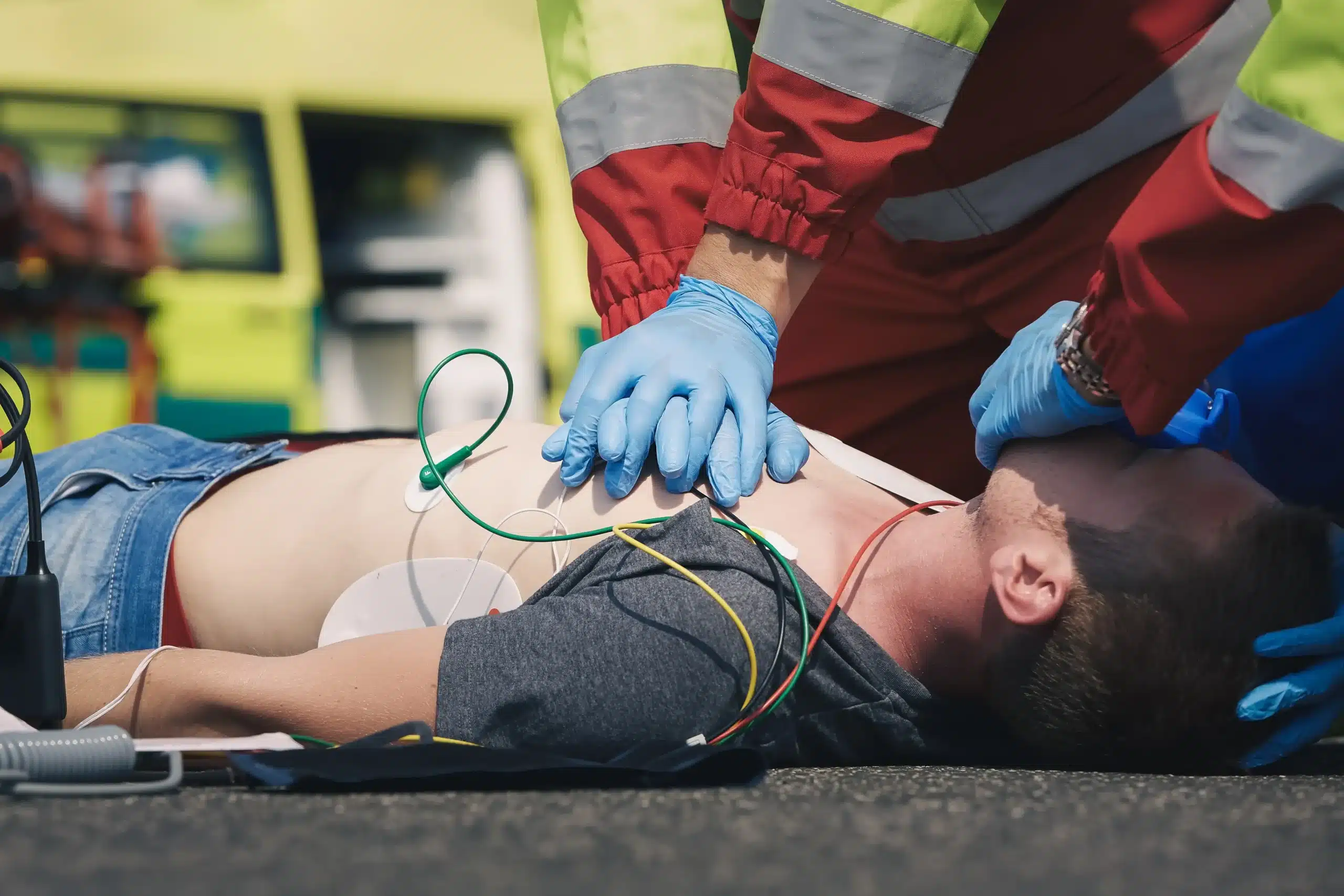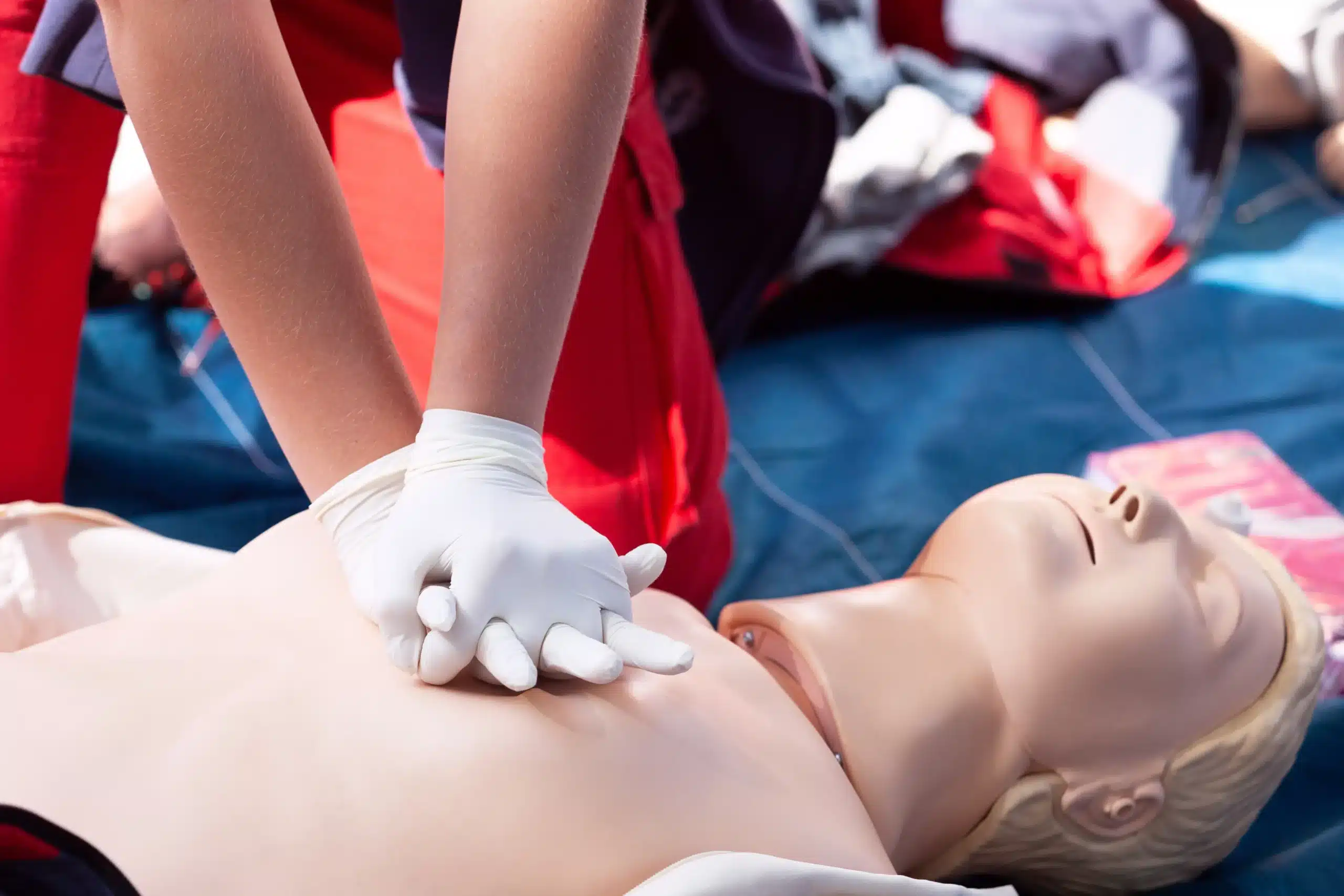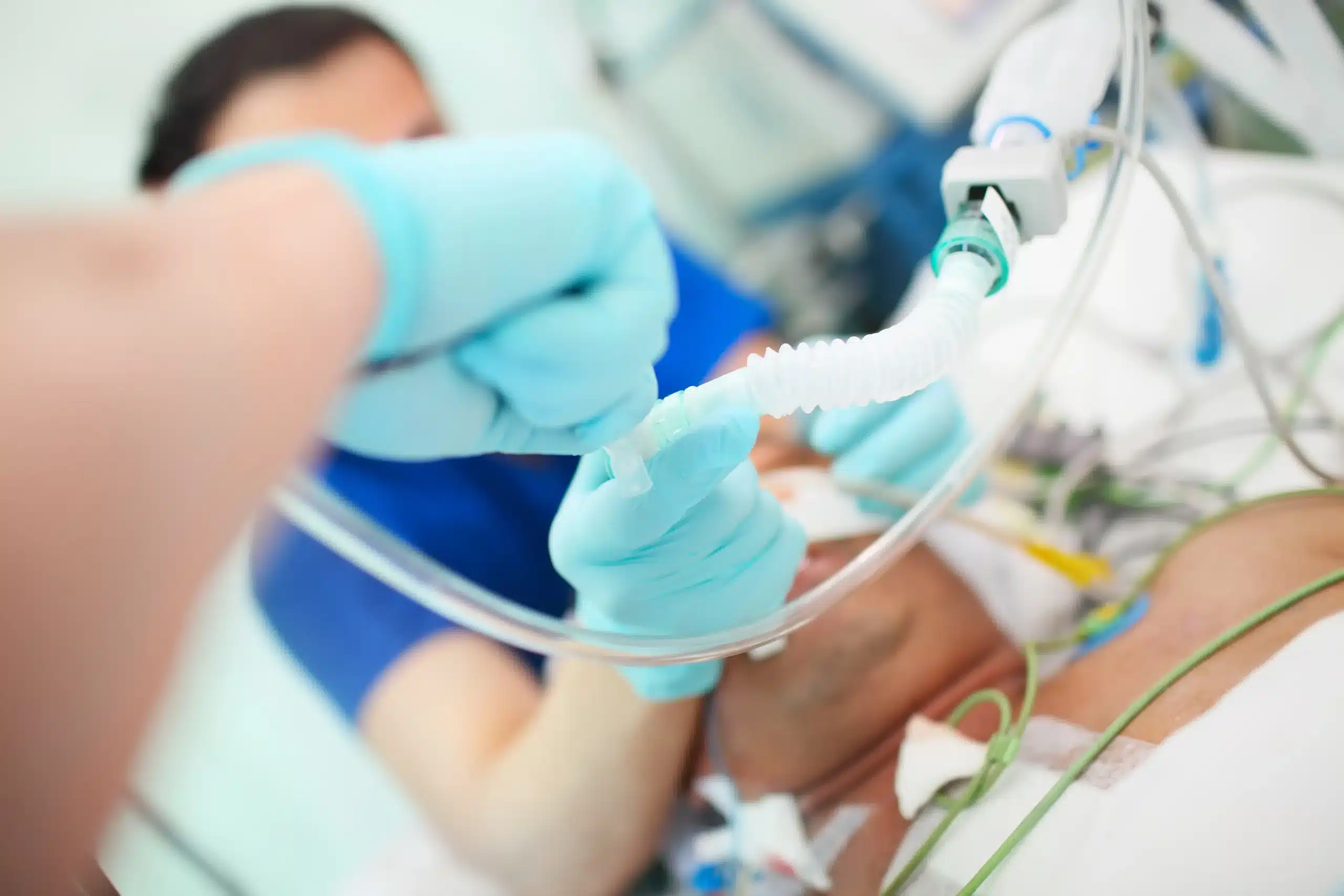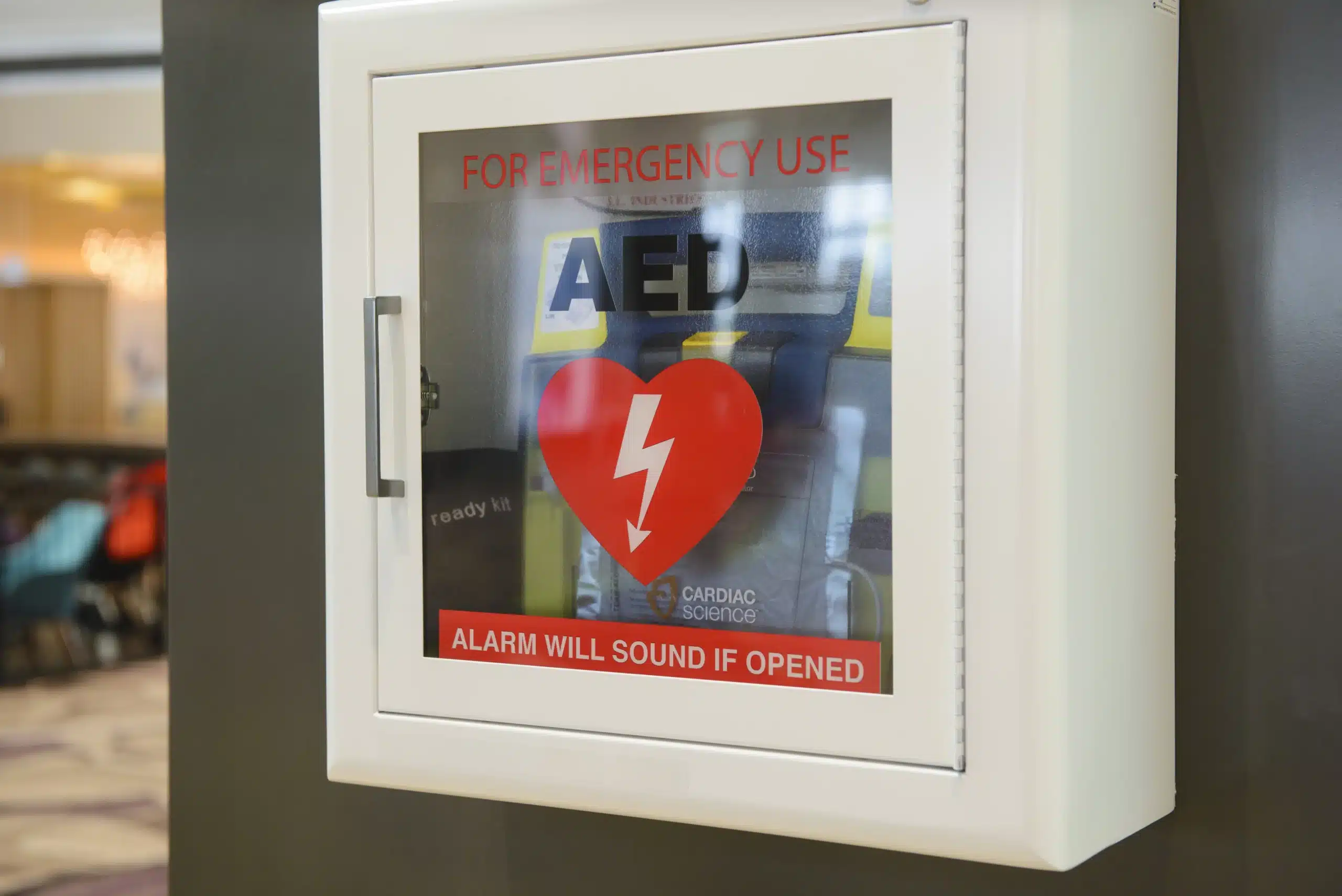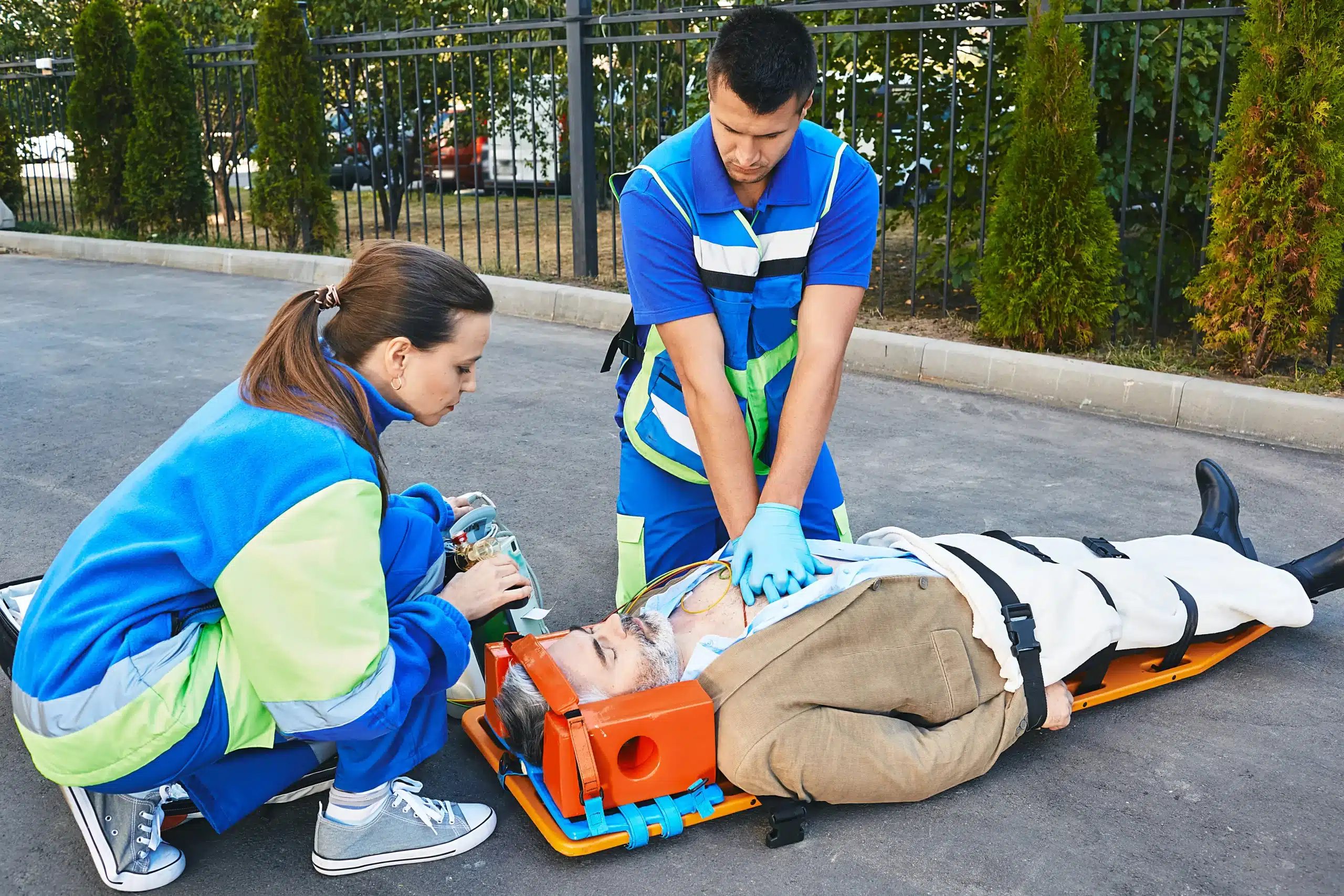Working in healthcare in Millbrae means being prepared for anything, especially when it comes to children’s health. Pediatric Advanced Life Support (PALS) training is more than just a certification—it’s a commitment to providing the highest quality care for infants and children facing life-threatening situations. This guide will help you understand the importance of pediatric advanced life support in Millbrae and guide you through the process of finding the right training program. We’ll discuss key skills, local providers, course structures, costs, and tips for maintaining your certification. Let’s work together to ensure the well-being of our community’s youngest members.
Key Takeaways
- PALS certification equips you with life-saving skills: This specialized training provides the knowledge and practical experience needed to confidently handle pediatric emergencies, from assessing a child’s condition to performing necessary interventions.
- Choosing the right PALS course requires research: Consider factors like location, schedule, course format (online, blended, or in-person), and the provider’s reputation. Look for a program that offers hands-on training and aligns with your learning style.
- Preparation and ongoing learning are key to success: Familiarize yourself with core concepts before the course, actively engage during training, and commit to continuing your pediatric education after certification. This ensures you stay up-to-date with the latest guidelines and best practices.
What is Pediatric Advanced Life Support (PALS) in Millbrae?
Pediatric Advanced Life Support (PALS) is specialized training designed to equip healthcare providers with the skills to respond to life-threatening emergencies in infants and children. This certification course covers a range of critical situations, from cardiopulmonary arrest and shock to respiratory emergencies. Given the unique needs of young patients, PALS training is essential for ensuring timely and appropriate care in Millbrae and beyond.
What is PALS and why is it important?
PALS isn’t just another certification; it’s a comprehensive program built on the understanding that children don’t respond to medical emergencies the same way adults do. This specialized training bridges that gap, providing healthcare professionals with the knowledge and practical skills to effectively manage pediatric emergencies. The importance of PALS lies in its potential to significantly improve outcomes for infants and children facing life-threatening situations. It empowers providers to act quickly and confidently, ultimately increasing the chances of survival and minimizing long-term complications.
Key skills and knowledge learned in PALS training
PALS courses cover essential skills, from recognizing the subtle signs of deterioration in a child to performing life-saving procedures. You’ll learn how to assess and treat critical conditions like shock, heart problems, and respiratory distress. The program also emphasizes post-resuscitation care and building strong teamwork skills. Interactive scenarios and simulations are often incorporated, allowing participants to apply their knowledge and hone their decision-making abilities under pressure. This hands-on approach helps solidify learning and builds confidence in managing real-world pediatric emergencies.
Benefits for Millbrae healthcare professionals
Holding a PALS certification opens doors for healthcare professionals in Millbrae. It’s a valuable credential recognized by hospitals, ambulance services, and other healthcare settings. Certification is typically valid for two years, demonstrating a commitment to ongoing professional development and high-quality patient care. For those working in or around Millbrae, this specialized training can be particularly advantageous, ensuring the community has access to skilled providers ready to handle pediatric emergencies. Investing in PALS training enhances your career and equips you to make a real difference.
Find PALS Training in Millbrae
Finding the right Pediatric Advanced Life Support (PALS) course in Millbrae means understanding your options. Here’s a look at local providers and course formats:
Safety Training Seminars
Safety Training Seminars offers PALS certification designed for healthcare providers and others seeking this specialized training. They emphasize practical skills and real-world scenarios to prepare you for pediatric emergencies. Their San Mateo location conveniently serves Millbrae, Daly City, and surrounding areas. They also provide a low price guarantee, ensuring you receive excellent training at a competitive rate.
American Heart Association (AHA) Courses
The American Heart Association (AHA) is a recognized leader in resuscitation training. Their PALS courses adhere to evidence-based guidelines and offer comprehensive instruction in pediatric emergency care. While Safety Training Seminars provides AHA-aligned PALS training, you can also use the AHA website to find other authorized providers near Millbrae.
American Red Cross Programs
The American Red Cross also offers a PALS certification program. Their blended learning format combines online modules with in-person skills sessions, providing flexibility for busy schedules. This allows you to complete the cognitive portion at your own pace before attending a hands-on session.
Online and Blended Learning
Many providers, including the Red Cross and Safety Training Seminars, offer online or blended learning PALS certification. This can be an excellent option if you prefer self-paced learning or have scheduling limitations. Ensure the course includes an in-person skills check, essential for mastering PALS techniques.
Unique Features of Local PALS Courses
Local PALS courses in Millbrae often incorporate region-specific elements. Some programs may emphasize common local pediatric emergencies or tailor scenarios to reflect area healthcare settings. When selecting a course, consider factors like instructor experience, class size, and opportunities for individual feedback. Safety Training Seminars, for example, prioritizes small class sizes and personalized instruction.
PALS Certification: Process, Costs, and Structure
Course structure and duration
PALS courses use a blended learning format, combining online coursework with an in-person skills session. This approach allows you to learn the material at your own pace online, then practice your skills in a hands-on environment. The online portion covers essential concepts and procedures, while the in-person session focuses on developing practical skills and performing simulated scenarios. This combination ensures you grasp both the theory and practical application of pediatric advanced life support techniques.
Prerequisites
Before taking a PALS course, you must have current pediatric basic life support (BLS) certification. This prerequisite ensures you have a foundational understanding of basic life-saving procedures before moving on to more advanced techniques. You can find BLS certification courses in San Mateo through Safety Training Seminars.
Certification and renewal
Once you complete the PALS course and pass the required exams, you’ll receive your PALS certification, valid for two years. To maintain your certification, you’ll need to retake the course before it expires. This ensures your skills and knowledge remain up-to-date so you can continue providing the highest quality care. You can find PALS recertification courses with Safety Training Seminars.
Average costs and discounts
The cost of PALS certification can vary but generally includes online course materials, the in-person skills session, testing, and a certification card. Many providers offer discounts for groups or organizations, so it’s always a good idea to inquire about potential cost savings. Safety Training Seminars offers a low-price guarantee, ensuring you receive the most affordable training available in San Mateo County. Check our low price guarantee page for more details.
Safety Training Seminars’ low price guarantee
We’re committed to providing high-quality PALS training at the most competitive prices. Our low-price guarantee means we’ll match any lower price you find for comparable PALS training in San Mateo County. We believe everyone should have access to affordable, life-saving training, and we strive to make our courses accessible to all.
Choose and Register for Your PALS Course
So, you’re ready to sign up for your PALS certification. Great! This section walks you through choosing the right course and getting registered.
Choosing a Provider
Finding the right provider is key to a positive learning experience. Look for providers like Safety Training Seminars, which offers various courses, including CPR, BLS, ACLS, PALS, and First Aid. They even offer specialized training for California childcare providers and NRP courses in locations like Concord and San Francisco. Consider factors like location, schedule flexibility, and the training center’s overall reputation. For those in or near Millbrae, check out the courses available at Millbrae CPR Classes.
Comparing Courses
Not all PALS courses are created equal. While the core content is similar, the teaching style, materials, and overall course structure can differ. The American Red Cross is a well-known option. Do some research to see what resonates with your learning style.
Online vs. In-Person Training
Many PALS courses now offer a blended learning format. This means you’ll complete some coursework online at your own pace and then attend an in-person skills session. The Red Cross PALS course uses this blended learning approach. Think about how you learn best and whether the flexibility of online learning combined with hands-on practice works for you.
Registering for a Course
Once you’ve chosen a provider and course format, registration is usually straightforward. Many providers have online registration systems. Check their websites for schedules, available dates, and registration instructions. Safety Training Seminars makes it easy to find a course and register online.
Prerequisites and Materials
Before you register, double-check any prerequisites. For PALS courses, you’ll typically need existing knowledge of pediatric basic life support (BLS). The American Red Cross clearly states this BLS prerequisite for their PALS course. Make sure you have this covered before signing up. Also, find out if there are any required materials you need to purchase or prepare in advance.
Prepare for and Maintain Your PALS Certification
Getting ready for your PALS certification involves more than just showing up on the day of the course. A little prep work goes a long way, and understanding what to expect can help you succeed. This section covers everything from pre-course study tips to keeping your skills sharp after you’re certified.
Tips for Course Completion
Before your PALS course begins, familiarize yourself with the course materials. The PALS course covers a lot of ground, from assessing and recognizing life-threatening emergencies in children to treating shock, respiratory distress, and cardiac events. Reviewing the core concepts ahead of time will give you a solid foundation. Don’t feel like you need to memorize everything—focus on understanding the key principles of pediatric assessment and intervention. Consider studying with a partner or forming a study group to make the process more engaging and interactive.
What to Expect During Training
PALS training often uses a blended learning format, combining online coursework with in-person skills sessions. This approach allows you to learn at your own pace and then practice your skills in a hands-on environment. Expect a dynamic learning experience with interactive discussions, case studies, and simulations. Come prepared to actively participate and ask questions. This is your opportunity to clarify any doubts and solidify your understanding.
Hands-On Skills and Scenarios
PALS courses incorporate realistic scenarios to reinforce learning and build confidence. You’ll have the opportunity to practice essential skills like airway management, intravenous access, and medication administration in a simulated environment. These scenarios are designed to challenge your decision-making abilities and improve your response to pediatric emergencies. Take advantage of these hands-on experiences to ask instructors for feedback and refine your techniques.
Maintaining Your Certification
Your PALS certification is typically valid for two years. To maintain your credentials, you’ll need to recertify before it expires. Check with your certifying organization, such as the American Heart Association or the American Red Cross, for specific renewal requirements. Staying current with the latest guidelines and best practices is crucial for providing the highest quality of care. Set reminders for yourself to avoid letting your certification lapse.
Ongoing Education in Pediatric Care
Even after you’re certified, continuing your education in pediatric care is essential. Consider attending workshops, conferences, or pursuing advanced certifications to expand your knowledge and refine your skills. PALS training enhances critical thinking, problem-solving, and teamwork—skills that are invaluable in any healthcare setting. Staying engaged in ongoing learning demonstrates your commitment to providing excellent pediatric care. Subscribing to relevant journals or joining professional organizations can help you stay informed about the latest advancements in the field.
Related Articles
- HeartCode PALS San Mateo: Your Guide to Certification – San Mateo CPR Classes
- Online PALS Classes in Daly City: Your Guide – San Mateo CPR Classes
- PALS HeartCode in Daly City: Your Complete Guide – San Mateo CPR Classes
- BLS Classes in Millbrae: Your Complete Guide – San Mateo CPR Classes
- AHA PALS Classes in San Mateo, CA – San Mateo CPR Classes
Frequently Asked Questions
What exactly does PALS training cover?
PALS training focuses on the specific needs of infants and children in medical emergencies. It goes beyond basic life support (BLS) to provide advanced skills in areas like airway management, rhythm recognition, and medication administration tailored to young patients. The course also emphasizes effective teamwork and communication during emergencies.
How is PALS different from BLS?
While BLS provides a foundation in basic life-saving techniques, PALS builds upon that foundation with advanced skills and knowledge specific to pediatric emergencies. PALS delves deeper into the physiological differences between children and adults, equipping healthcare providers to manage more complex situations.
Where can I find PALS certification courses in Millbrae?
Safety Training Seminars offers PALS certification in San Mateo, conveniently serving Millbrae and surrounding areas. You can also check the American Heart Association and American Red Cross websites for other authorized training centers near you. Look for courses that offer a blended learning format, combining online learning with in-person skills practice.
What are the prerequisites for taking a PALS course?
You must have a current BLS certification to enroll in a PALS course. This ensures you have the fundamental life support skills necessary to progress to the advanced training. Many PALS providers also offer BLS certification, so you can often complete both through the same organization.
How long does PALS certification last, and how do I renew it?
PALS certification is typically valid for two years. To renew, you’ll need to retake the course before your current certification expires. Recertification ensures your skills and knowledge are up-to-date with the latest guidelines and best practices in pediatric advanced life support.
